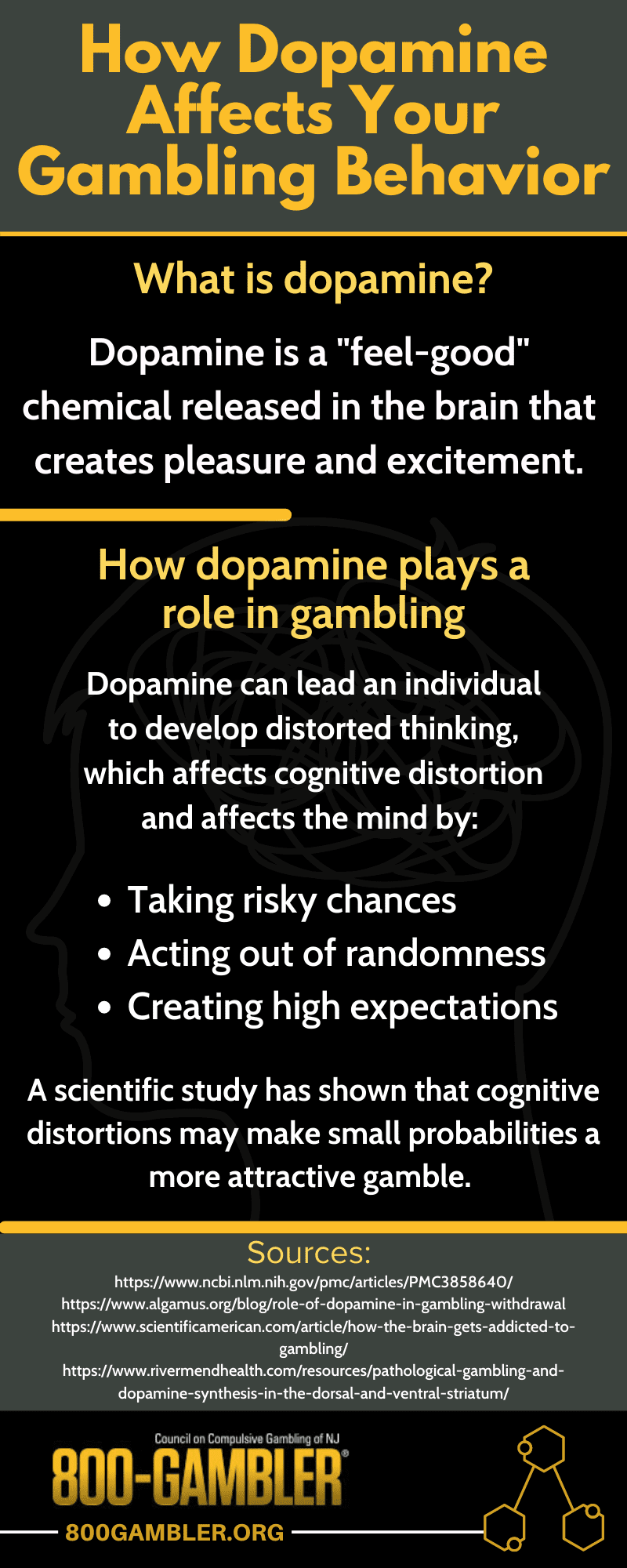Just like many other experiences in life that make us feel good — eating, shopping, exercise, etc. — gambling can trigger the brain’s reward system, releasing a surge of dopamine that creates feelings of pleasure, elation, and excitement.
You don’t even need to be on a winning streak to experience the effects of dopamine. The mere act of taking a risk to create a chance to win is enough to trigger a dopamine response. If you have ever sat around a crowded roulette table, the excitement as the roulette wheel spins is almost palpable. Even losing can trigger a dopamine response. Therefore, it is little wonder that so many people develop a gambling problem in a bid to create this natural high over and over again.

What Is Dopamine?
Dopamine is a feel-good neurotransmitter that is associated with reward and pleasure. It’s a very complex chemical that can significantly impact our mood, motor function, and decision-making process. The dopamine release associated with gambling is around ten times more powerful than the release associated with more naturally rewarding experiences.
Distorted Thinking
Studies have shown that a gambling problem can contribute to cognitive distortions that affect a person’s thought processes on chance, skill, and randomness. This can lead the gambler to have an inappropriately high expectation of winning or believing that a high element of skill is involved in games of chance.
Chasing the Highs and the Losses
The need to experience the thrill and excitement that gambling can create often overshadows the ability to make sensible choices. While most people can practice safe play behavior and walk away when they lose, others may continue to play to chase their losses or put everything on the line in a desperate attempt to win big.
Over time, the constant surges of dopamine caused by a gambling problem can hijack and alter the brain’s reward system, creating new behaviors that are difficult to break. You still get the same triggers to gamble, but the hit isn’t as strong, and what was once an enjoyable activity can quickly spiral out of control.
Expert Help Is Available
Gambling and dopamine work well together when the balance is right. If you feel that you are experiencing more and more triggers to gamble, it could be time to seek help. A gambling problem is something you don’t need to deal with alone. We offer unbiased, confidential, and free assistance. For more information, call our helpline today.
Sources:
https://www.ncbi.nlm.nih.gov/pmc/articles/PMC3858640/
https://www.scientificamerican.com/article/how-the-brain-gets-addicted-to-gambling/



